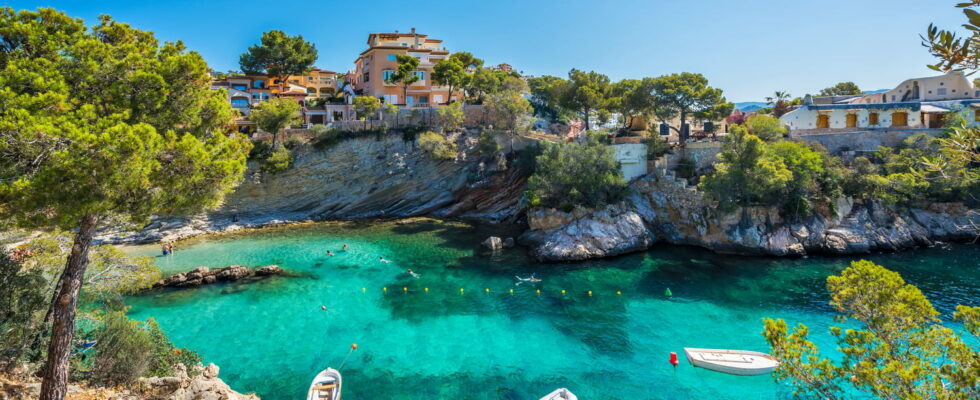Will summer be spoiled in this well-known destination for its sun, turquoise waters and numerous beaches?
Each summer, this archipelago renowned for its idyllic beaches and turquoise waters, attract millions of European tourists. But the experience, already a little spoiled in recent years by the over-tourism which threatens the very frequented islands, could soon turn into a nightmare. Invasive algae from the tropics could well invade this little Mediterranean paradise.
For several years, invasive algae of tropical origin has propagated at an alarming speed in the Mediterranean, have observed researchers. Arrived from Asia in recent years by ballast waters of merchant ships, these exotic species colonize the seabed at a frantic pace ever observed before, note the researchers in a study published in 2024.
Initially detected in Morocco and southern Spain, the Rugulopterix Okamurae algae, considered by the European Union as the most dangerous, is now present to Barcelona, where it was detected in late 2022 in the waters of the port . Scientists follow its inexorable progression to the north and east of the Mediterranean basin.
They now consider his arrival at the quasi-permanent Balearics, in view of the intense maritime links between the continent and the islands. Something to worry the locals, as the economy of the Balearics is based on tourism.

“Given the capital importance of the maritime economy, tourism and navigation for the Balearics, it is necessary at all costs to prevent these algae from reaching our coasts”, alert Fiona Tomàs, researcher specialist in invasive species at the Mediterranean Institute for Advanced Studies (IMEDEA), interviewed by several local newspapers.
Because once installed, this alga proliferates and covers the seabed, stifling all life. Not consumed by local fish, it makes biodiversity fall. Its fragments then run up en masse on the beaches, making them impracticable. What make tourists flee and paralyze the economy of the archipelago.
In areas already affected, the damage is considerable. At Tarifa in Andalusia, the town hall has already declared itself “overwhelmed” and unable to finance the cleaning of the beaches. The fishermen see their nets constantly engorged, requiring hours of work to untangle them.
Faced with the emergency, scientists now recommend the rapid implementation of a surveillance system to detect the arrival of the alga in the Balearic. “Quarantine protocols” of the affected areas and an awareness of sailors, fishermen and boaters to report its presence would limit its spread. “Where it settles, this alga colonizes in a short time. And when this stage is reached, nothing can be done,” warns María Altamirano, expert of the subject at the University of Malaga.
